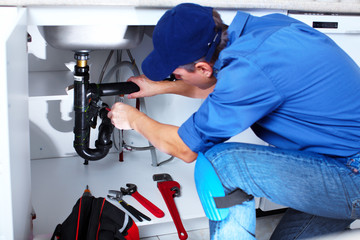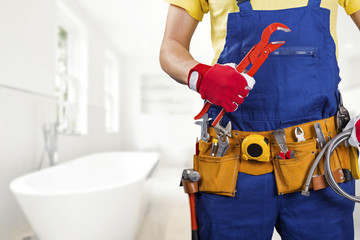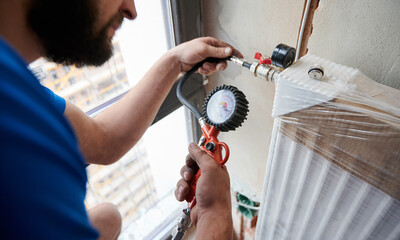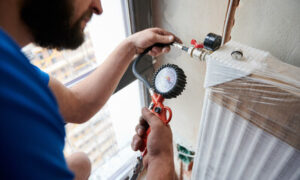If your home is experiencing a plumbing issue that cannot wait, it’s time to call an emergency plumber. However, finding the right plumber can be challenging. Water leaks can cause structural damage to your home and lead to mold and mildew growth. Emergency Plumbers Tampa also poses a fire hazard and may affect your electrical wiring.

Water leaks are one of the most common reasons for emergency plumber calls. They can lead to significant water damage in a short amount of time, so it’s important to get them fixed as quickly as possible. Emergency plumbers are trained to find and repair even the most hidden leaks. In some cases, they may need to remove part of a wall to locate the source of the leak.
A water leak can be caused by many things, from a faulty toilet flapper to an old and worn-out pipe. If you notice a sudden increase in your water bill or see water stains on the ceiling, there is likely a problem with your pipes.
If you suspect that there is a water leak in your home, turn off the main water supply valve immediately. This will stop any water from entering your home until a plumber arrives to fix the issue. In addition to shutting off the water, it’s also a good idea to look for any intermediary water cut-off valves near the source of the leak. These are typically located in the basement or crawl space of your home. They can be either knob-style or knife-style valves that are designed to shut off water flow to a specific fixture or the entire house.
Some leaks are more serious than others, so it’s important to call a licensed plumber as soon as you notice any signs of a leak. If the leak is caused by a broken pipe, it’s essential to have the plumber replace the damaged section of the pipe as soon as possible to avoid further problems.
When you call an emergency plumber, be sure to provide as much information about the problem as possible. This will help them diagnose the issue and determine if it requires immediate attention. You should also ask about their rates and whether they charge a fee for coming out on off-hours or weekend calls. Some plumbers will include this cost in the total bill, while others will require you to pay before they begin working.
As the weather gets colder, you’re at increased risk for frozen pipes. This is especially true if your house isn’t well-insulated or if some of your plumbing is exposed to cold temperatures. Frozen pipes are a major plumbing emergency that can lead to water damage and expensive repairs.
The good news is that there are some simple things you can do to prevent frozen pipes. You can open cabinet doors to let warm air flow under sinks and you can drain both hot and cold water from your plumbing fixtures in the winter. You can also use insulated sleeves or heat tape to wrap vulnerable parts of your plumbing. And, make sure everyone in your household knows where the water shut-off valve is located and how to turn it off in an emergency.
If you think your pipes are frozen, it’s important to act quickly before the problem worsens. Start by locating the affected pipe. This may be difficult if the frozen part of the pipe is in the basement, crawl space, attic, or exterior wall. If you can’t find the frozen portion of the pipe, try opening any faucets connected to it to relieve pressure.
You should also try to thaw the frozen portion of the pipe by applying heat to it. Never use an open flame to do this, as it could cause the pipe to burst. Instead, apply heat to the frozen section of the pipe using a heating pad, hair dryer, or portable heater (just don’t use an electric heater if there is standing water nearby).
You should also check your property insurance policy to see what its coverage is for damaged caused by frozen pipes. Most policies will cover some or all of the costs associated with frozen pipes, but you’ll need to provide proof that you took the necessary precautions to avoid them. This may include documentation such as maintenance records and photos of the area before and after the issue occurred. If you don’t have a property insurance policy, it’s worth investing in one. It can save you a lot of stress and money in the long run.
Sewer backups are a huge plumbing disaster that not only destroy your home’s valuable fixtures, but can also pose health risks. Since sewage is comprised of human waste, parasites, bacteria and other germs that can make you sick, it’s important to call an emergency plumber to fix sewer problems as soon as possible. A major sewage backup can even cause extensive water damage, mold and mildew in your home.
While a major sewer backup can happen at any time, there are certain things you can do to reduce the risk of it happening in your home. Make sure to never flush anything but toilet paper down the drain, and avoid pouring fats, oils, grease or other clogging materials down your sinks and tubs. It is also a good idea to get your home’s sewer line inspected periodically for cracks and other problems that can lead to a backup.
If you experience a sewer backup, shut off your home’s main water valve and don’t use any of your sinks, tubs or toilets until the problem is fixed. Wear protective clothing like face masks and gloves when entering any rooms with standing sewage water, and open windows and doors to ventilate the area. You should also turn off your home’s electricity to prevent any electrical hazards.
Some homeowners believe that they’re protected from a sewer backup through their home insurance policy, but this is not always the case. Most standard home insurance policies do not cover sewage backups unless you specifically buy extra coverage for it. However, many plumbing companies provide a special policy called sewer backup coverage that can help you pay for any damages caused by a backup.
If you’re not sure if your home is covered, contact your insurance broker to find out more. Having this coverage can be well worth the investment, as it will help you pay for repairs and cleanup if a sewer backup causes significant damage to your home. You can purchase this coverage separately from your standard home insurance plan, or you can add it as an endorsement to your existing policy.
Drains can become clogged with hair, soap scum, and other debris that collects over time. These clogs usually cause slow-moving water or foul odors. If you notice these signs, call an emergency plumber right away.
Emergency plumbers are qualified to handle a wide variety of tasks, including repairing and installing plumbing fixtures. They are also trained to deal with dangerous situations such as burst pipes. To find a good 24-hour plumber, ask people in your network for recommendations and check out online reviews. Angi is a great resource that can help you connect with reputable and experienced plumbers.
Some common symptoms of a clogged drain include slow-moving water, smelly odors, and gurgling sounds. If the clog is caused by an object like a toy or piece of jewelry, you can try to remove it yourself by pouring hot water down the drain. If this does not work, you can try using a plunger or a snake. If the clog is in a difficult to reach area of the pipe, it may require more extensive repairs.
Clogged drains can be a major hassle, but they are often preventable. To avoid a clog, make sure to use a drain stopper and put in a garbage disposal regularly. You can also install a drain filter or screen to keep large items out of the drain.
If you do not have a drain stopper, you can easily make one by cutting the end of a wire clothes hanger and making a hook shape with it. Then, stick it in the drain and fish around for obstructing objects. You can also purchase a household auger or drain snake from a hardware store. These tools have a more flexible head than wire hangers and can get into narrower spaces of the drain.
In most cases, a clogged drain is not a severe problem that requires an emergency plumber. However, if the clogged drain is causing water to back up into your home, it should be addressed as soon as possible. A clogged drain can also lead to other issues such as flooding and even structural damage to your home.


